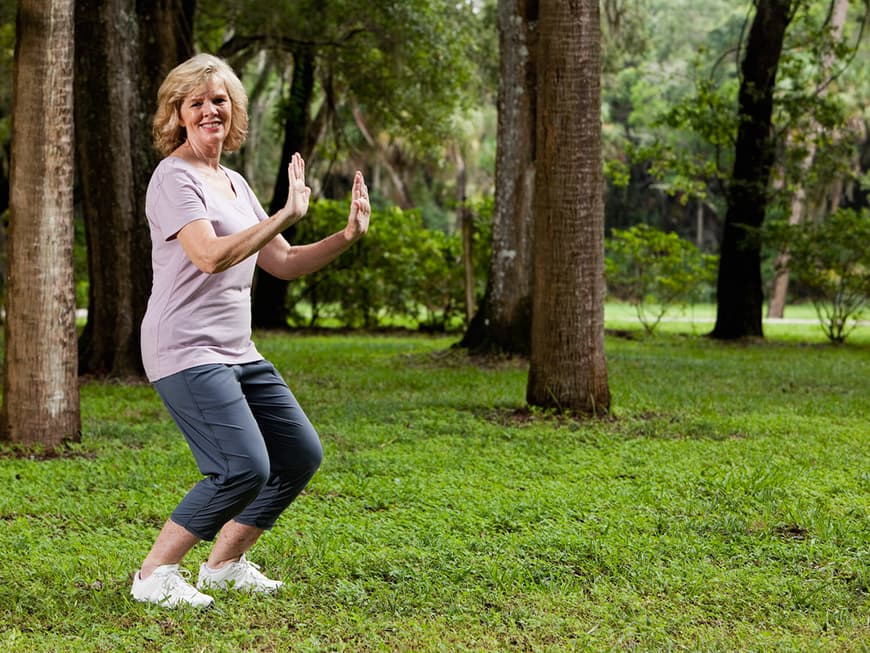
Better quality of life
In Boston (USA), it has now been shown that the flowing movements of this sport are more beneficial for knee osteoarthritis than normal physiotherapy. Doctors divided 204 people with knee osteoarthritis into two groups. One group trained in Tai Chi twice a week for three months, while the participants in the other group received the same amount of physiotherapy.
At the end of the twelve weeks, the success of the treatment was compared. Both tai chi and physiotherapy had reduced the pain in the participants' knees. Joint function and gait tests also showed that both methods were equally successful. But shadow boxing was superior to physiotherapy in two respects: The tai chi group reported a greater gain in quality of life, and the participants also suffered less depression than the comparison group. Depression and osteoarthritis often go hand in hand.
Other studies have previously shown the positive effect of shadow boxing on pain patients, for example in fibromyalgia ("soft tissue rheumatism").
Muscle maintenance in seniors
In Canada, 21 studies were recently compiled that evaluated the health effects of tai chi on older people. According to these studies, it promotes muscle maintenance in this group of people. Seniors who regularly practiced tai chi performed better in walking tests, were able to stretch and stretch better and, last but not least, reported a higher quality of life.
